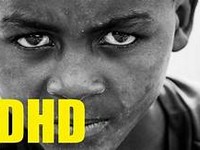
AIDS AND HIV INFECTION
FOODS THAT HARM
Shellfish, hamburgers, sushi, homemade mayonnaise, and other undercooked foodFOODS THAT HEAL
FOODS TO LIMIT
WHO’S AFFECTED
5 million in North America
It’s imperative for a patient to eat as many nutrient-dense foods as possible
Unfortunately, maintaining good nutrition is complicated by the manner in which AIDS affects the digestive system
The disease reduces absorption of nutrients, especially folate, riboflavin, thiamine, and vitamins B6 and B12; it often causes intractable diarrhea, which causes further nutritional loss; and it increases the risk of intestinal infections
Many of those with AIDS also suffer appetite loss and bouts of nausea, either from the disease or from medications
Some AIDS specialists advise artificial feeding if nutrients are not being absorbed properly
Nutrition Connection
Asymptomatic HIV-infected individuals should follow the same dietary practices recommended for healthy peopleEat high-quality foods
A diet comprised of fruits, vegetables, whole grains, legumes, and lean protein sources can contribute to your health and well-being
Sugary foods, such as cookies and soft drinks, provide empty calories that don’t convey needed nutrition and should be limited
The following guidelines will help you get the most out of your diet: Aim for 5 to 6 servings of vegetables and fruits per day
A colorful array will ensure a range of vitamins and nutrients
Be sure to wash them thoroughly
Many doctors advise following the same precautions as when traveling abroad: Eat only cooked vegetables, and eat fruits that are peeled, stewed, or canned
Some counsel that salads and raw fruits and vegetables are safe but may be difficult to digest
Make sure at least 50% of carbohydrates should come from whole grain sources
These include quinoa, barley, and buckwheat
Keep protein in check
Extremely high amounts of protein can strain the kidneys
Consume heart-healthy foods
People with HIV may suffer from medication-related high cholesterol and triglyceride levels
Avoid saturated fats, which increases the risk of cardiovascular disease, and instead opt for polyunsaturated and monounsaturated fats, which help protect against heart disease
Sources include fatty fish such as salmon, olive oil, walnuts and flaxseed oil
Practice food safety
Because HIV attacks the immune system, it makes a person more vulnerable to infections, including food poisoning from salmonella, shigella, campylobacter, and other bacteria
See for food safety practices
QUICK TIP:
Avoid harmful dietary approaches Some advocate taking high doses of zinc and selenium to bolster the immune systemThere is no proof that these nutrients protect against infections; in fact, studies show that taking 200 mg to 300 mg of zinc a day for 6 weeks actually lowers immunity
Excessive selenium can also cause vomiting and diarrhea
Seek help after rapid weight loss
Someone experiencing dramatic weight loss may require artificial feeding (hyperalimentation)
This is generally administered through a gastric feeding tube inserted into the stomach or an intravenous line that pumps predigested nutrients into the bloodstream
Adjust your diet when you suffer from frequent bouts of diarrhea
Avoid raw fruits and vegetables and high-fiber foods such as whole grain breads and cereals
Also avoid gassy foods such as onions, beans, cabbage, spicy foods, and carbonated beverages
Stay away from rich, fatty foods, such as fatty meats, butter, and whole milk
It’s also a good idea to avoid caffeine, alcohol, and chocolate
Drink fluids after nausea
When you suffer from nausea or diarrhea—common side effects of many HIV medications—drink plenty of fluids to replace what you’ve lost, such as water, broth, or flat ginger ale, or eat popsicles
When you are ready to eat, start with bland foods such as toast or crackers
Beyond the Diet
For people with HIV or AIDS, there are more than 20 drugs availableOften taken in combinations tailored to each person’s specific needs, these drug cocktails have proven effective in warding off the symptoms of AIDS and extending people’s lives
In addition, those with HIV or AIDS need to take extra precautions with health matters: Watch upper RDAs for supplements
Nutritionists often recommend that HIV-positive people take a multiple vitamin and mineral pill to prevent nutritional deficiencies
However, supplements with more than 100% of the RDA should only be used if prescribed by a doctor
Avoid self-medicating with herbs
There is no evidence supporting the efficacy of herbs, and some herbal preparations contain substances that can cause serious side effects or interact with medications
Go easy with mouth infections
When mouth or throat infections, such as thrush or ulcers, make eating uncomfortable, try the following
Eat soft, moist foods that are easy to swallow, like mashed potatoes and gravy
Use a straw for liquids
Keep food at room temperature
Avoid foods and juices with high acid content
Importance of well balance diet



